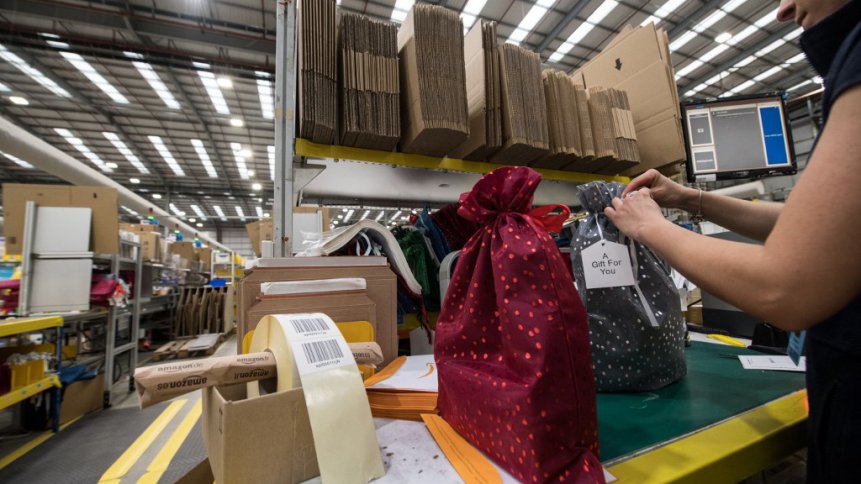How major brands seamlessly motivate their remote tech workforce

Over the last few years, the global remote workforce has ballooned, thanks largely to the prevalence of reliable digital solutions to fill the productivity gap when employees couldn’t go to the workplace. Working patterns were maintained throughout the pandemic, but big businesses were forced to think differently about how to engage with newly distributed workers.
As industries transitioned into wider acceptance of remote and hybrid working practices, companies began to augment their onboarding and workflow integration processes to feature things like welcome kits, both physical and digital, to boost morale, team spirit and make the new or newly remote employee feel connected with the organization at large.
Customized Contents
Customizing the goody bag to be unique to the person can go a long way to fostering that sort of connection, and is why a lot of big firms are resorting to providing premium promotional products in their gift baskets. Is it worth the cost of investment? That’s hard to determine at this early stage, but with research suggesting that only 24% of remote and hybrid workers can relate to their company culture from afar, bigger outfits with sizable technology stacks like Spotify, Amazon, Shopify, and Hello Fresh seem to think it is.
All of the above-mentioned digital disruptors work with Go Swag, a supplier of high-end promotional products for enterprise clients who want to supply better quality goods with a focus on sustainable manufacturing, supply chains, and production. The startup works exclusively with brands that want to redefine their corporate offerings, and who have goals that align with Go Swag’s three business pillars: sustainability, quality and utility.
Go Swag, based in Glasgow, Scotland, was started in 2019 with less than £200 in capital by friends and former co-workers Ben Greenock and Conor McKenna, professional product designers who spotted a gap in the sluggish and disjointed promotional product trade.
The founders previously had received questionable door gifts or witnessed new team members getting them, causing them to harness their skills in their downtime to experiment, including learning how to balance logistical and supply chain headaches during the double storm of Brexit and COVID-19 interruptions.
The Fulfillment Chasm
Greenock and McKenna attempted to occupy this supply and fulfillment chasm by offering an end-to-end solution, drilling down on the entire item ecosystem, from design to production to global logistics and last-mile delivery. Go Swag watches over the entire value chain, and has earned a reputation as one of the world’s leading sellers of branded gifts in the process.
After gaining its first client, Alaska’s Anchorage Museum, from tech product sharing platform Product Hunt, Go Swag re-prioritized its goals when it realized that bigger companies would have better alignment with its CSR and ESG goals.
“That’s when things really took off,” noted Greenock. “We started only accepting minimum orders of 50 and targeting bigger companies. That’s when we realized what had been going wrong.” Go Swag started to gain real traction when it targeted bigger tech companies, with minimum orders of at least a hundred. It landed GoCardless in the third quarter of 2019.
Decacorns and Tackling the Talent Crisis
Last year, the UK became only the third technology ecosystem to be valued at £1 trillion, a goal only the US and China have achieved before this. The UK is now the domain of at least thirteen decacorns (businesses valued at at least US$10 billion or more). But this despite this seismic growth, especially in troubling economic times post-pandemic, the UK is struggling with a deepening technology talent crisis, that is threatening to get worse and stunt growth in the process.
When businesses of all scales are scrambling in the search to secure and retain the best digital talent, personalized gifts can engender loyalty and aid with mental wellbeing for technology staff. Vast numbers of workers for tech companies are either working part of the time or all of the time from remote locations, and well thought-out goody bags can help show that they are part of the larger team, rather than working in silos.
Go Swag itself is expanding rapidly, growing its 13-strong team to 33 in the UK soon, with plans to expand to new regions in America, Europe and Asia – the international wings will rely on localized suppliers to offset the organization’s supply chain carbon footprint.
“We’ve had so many reports of company morale being boosted. We are quite considerate when it comes to the items and the culture of the company and what they’re trying to do,” enthused Greenock. “Are they trying to create warmth? A better working environment? Make people healthier?
“We don’t just put stuff into the world, we try to create experiences rather than just a gift.”









